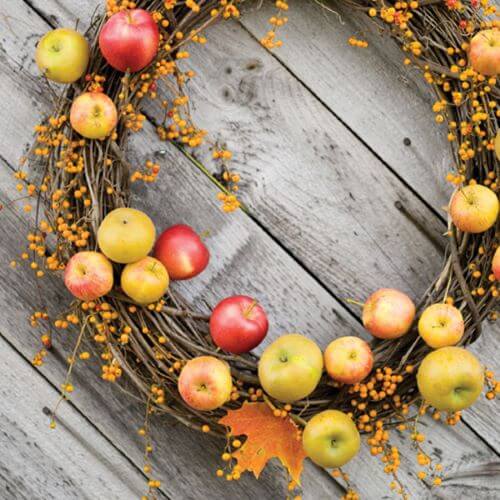How to Keep Your Plants Free From Pests and Disease
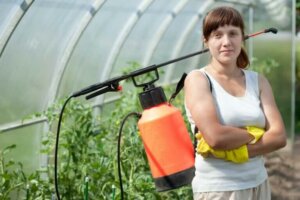
When it comes to decorating your home, houseplants are great accessories. With this in mind, we want to give you a few hints and tips to help you keep your plants free from pests and disease.
Decorating every corner of your home with plants is one of the best ways to fill your rooms with positive energy, making them feel brighter, warmer, and more welcoming. In this article, we’re going to help you give your plants the care they deserve so that they remain healthy and beautiful for years to come.
The arrival of spring brings its own set of problems
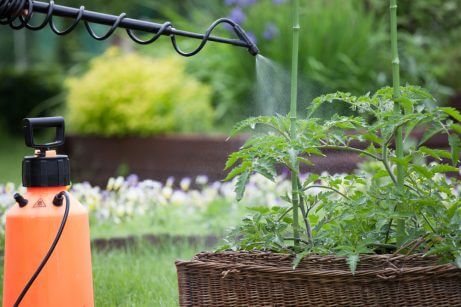
Spring brings nature to life, filling it with color and vibrancy. Meadows and gardens burst into bloom, and trees are in full leaf. However, it’s also at this time of year that your plants are most vulnerable to pests and disease, so you’ll need to take special care if you want to keep them safe. Take a look at the following tips.
What causes pests?
There’s no one reason why your plants might be infested with pests. Nature is full of insects and microorganisms, and they can attack your plants at any time. Generally speaking, infestations and disease are more likely to occur when there is some kind of imbalance.
Some of the factors that can affect the health of your plants include nutrient-deficient soil, chemical pollutants, excessive use of fertilizers, or excessive humidity.
A garden is a treasure trove
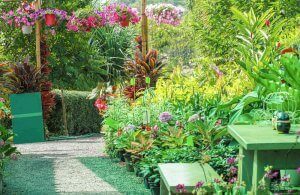
Taking care of your garden and giving it the attention it deserves will help ensure your plants stay happy and healthy. It’s not just a question of watering them regularly – each one will need special care, specific to its individual species.
Firstly, you’ll need to fertilize them and provide them with good-quality soil that’s rich in food and nutrients. They’ll also need regular pruning, and replanting when they need additional space. A healthy plant is a strong plant and will be better equipped to fight off pests and disease.
Look for organic fertilizers such as animal manure or mulch. These are chemical-free and will provide your plants with a wide variety of minerals and nutrients.
Paying close attention to your plants will help keep them free from pests and disease
It’s important that you learn to pay attention to your plants and check them regularly for signs of insects and mites. Only then will you be able to treat them in time, and solve any problems before they get out of control.
Make sure to check that the leaves and stems are a healthy green color. Remember, any spots or holes could be a sign of disease.
Common plant pests
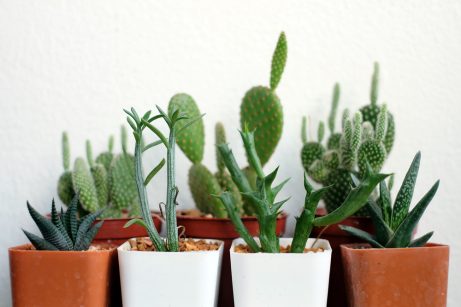
If you have a garden or a large collection of houseplants, it’s important to familiarize yourself with some of the different pests and diseases that could affect them. From the common aphid and the mealybug to the red spider, caterpillars, slugs, and snails.
If you have a vegetable garden, you’ll need to watch out for aphids and snails, especially if you live in a humid climate. The spider mite, on the other hand, prefers hotter, drier climates, and tends to attack the stems and leaves.
The best products to keep your plants free from pests and disease
If despite all your efforts, your plants seem to be infested with pests, you’ll need to look for a cure. Try to avoid chemicals as far as possible. There are many ecological phytosanitary alternatives that can help to eliminate pests without harming the environment or other living creatures. In some cases, you may even be able to make them yourself.
Top tip – some species, such as aromatic plants, naturally repel insects. For example, mint and basil are perfect for fighting flies and mosquitoes, while lavender is known to repel aphids.
Native plants can keep your plants free from pests and disease
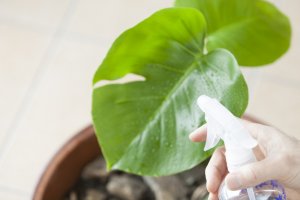
Did you know that when they look for a tree to nest in, birds always choose indigenous species? This is important because, if there are birds in your garden, there’s less likely to be pests.
If you have a garden, we recommend that you fill it with plants that are typical of the area. In addition to helping to maintain balance in the ecosystem, they’ll serve as natural protection for your garden. As they’re already well-suited to the climate and soil-type, they’ll be more resistant to pests, and any attacks will have less impact.
With these tips and a little extra care, you’ll have happy, healthy, and well-nourished plants in no time. Take good care of them, and always be on the lookout for warning signs, and you’ll be able to combat any problems that come your way.
Plants are the perfect way to brighten up your home and your life. Look after them properly, and enjoy them in all their glory, whether they’re out on your terrace, in your yard, or inside your home.
When it comes to decorating your home, houseplants are great accessories. With this in mind, we want to give you a few hints and tips to help you keep your plants free from pests and disease.
Decorating every corner of your home with plants is one of the best ways to fill your rooms with positive energy, making them feel brighter, warmer, and more welcoming. In this article, we’re going to help you give your plants the care they deserve so that they remain healthy and beautiful for years to come.
The arrival of spring brings its own set of problems

Spring brings nature to life, filling it with color and vibrancy. Meadows and gardens burst into bloom, and trees are in full leaf. However, it’s also at this time of year that your plants are most vulnerable to pests and disease, so you’ll need to take special care if you want to keep them safe. Take a look at the following tips.
What causes pests?
There’s no one reason why your plants might be infested with pests. Nature is full of insects and microorganisms, and they can attack your plants at any time. Generally speaking, infestations and disease are more likely to occur when there is some kind of imbalance.
Some of the factors that can affect the health of your plants include nutrient-deficient soil, chemical pollutants, excessive use of fertilizers, or excessive humidity.
A garden is a treasure trove

Taking care of your garden and giving it the attention it deserves will help ensure your plants stay happy and healthy. It’s not just a question of watering them regularly – each one will need special care, specific to its individual species.
Firstly, you’ll need to fertilize them and provide them with good-quality soil that’s rich in food and nutrients. They’ll also need regular pruning, and replanting when they need additional space. A healthy plant is a strong plant and will be better equipped to fight off pests and disease.
Look for organic fertilizers such as animal manure or mulch. These are chemical-free and will provide your plants with a wide variety of minerals and nutrients.
Paying close attention to your plants will help keep them free from pests and disease
It’s important that you learn to pay attention to your plants and check them regularly for signs of insects and mites. Only then will you be able to treat them in time, and solve any problems before they get out of control.
Make sure to check that the leaves and stems are a healthy green color. Remember, any spots or holes could be a sign of disease.
Common plant pests

If you have a garden or a large collection of houseplants, it’s important to familiarize yourself with some of the different pests and diseases that could affect them. From the common aphid and the mealybug to the red spider, caterpillars, slugs, and snails.
If you have a vegetable garden, you’ll need to watch out for aphids and snails, especially if you live in a humid climate. The spider mite, on the other hand, prefers hotter, drier climates, and tends to attack the stems and leaves.
The best products to keep your plants free from pests and disease
If despite all your efforts, your plants seem to be infested with pests, you’ll need to look for a cure. Try to avoid chemicals as far as possible. There are many ecological phytosanitary alternatives that can help to eliminate pests without harming the environment or other living creatures. In some cases, you may even be able to make them yourself.
Top tip – some species, such as aromatic plants, naturally repel insects. For example, mint and basil are perfect for fighting flies and mosquitoes, while lavender is known to repel aphids.
Native plants can keep your plants free from pests and disease

Did you know that when they look for a tree to nest in, birds always choose indigenous species? This is important because, if there are birds in your garden, there’s less likely to be pests.
If you have a garden, we recommend that you fill it with plants that are typical of the area. In addition to helping to maintain balance in the ecosystem, they’ll serve as natural protection for your garden. As they’re already well-suited to the climate and soil-type, they’ll be more resistant to pests, and any attacks will have less impact.
With these tips and a little extra care, you’ll have happy, healthy, and well-nourished plants in no time. Take good care of them, and always be on the lookout for warning signs, and you’ll be able to combat any problems that come your way.
Plants are the perfect way to brighten up your home and your life. Look after them properly, and enjoy them in all their glory, whether they’re out on your terrace, in your yard, or inside your home.



